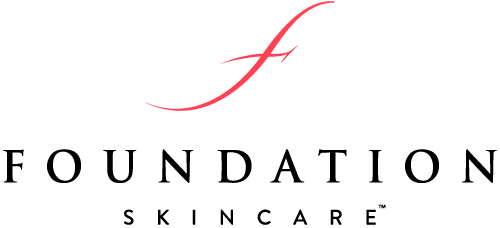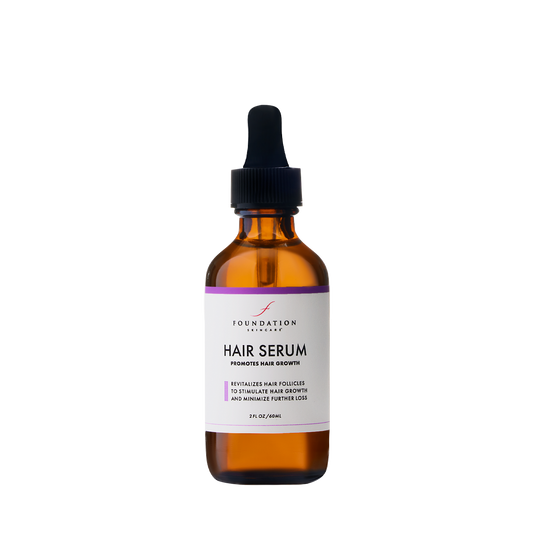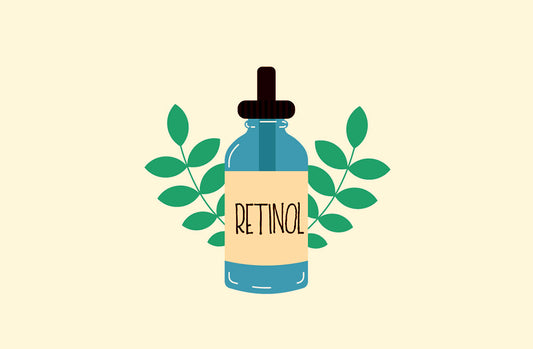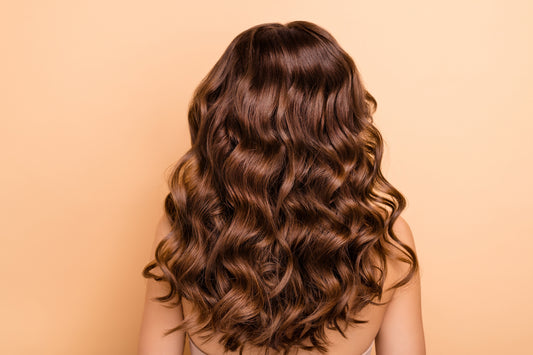From stress to hormonal changes, hair thinning can be caused by a number of factors. But it doesn’t always lead to hair loss. In fact, one positive thing about hair thinning vs. hair loss is that it tends to happen gradually, giving you enough time to figure out what’s causing these changes and take some proactive steps.
Read on to find out the differences between hair loss and thinning hair, what causes both, and which hair care products can help.
Hair Loss vs Thinning Hair
Hair loss and hair thinning are often used interchangeably, but they’re not the same thing. While hair loss refers to the partial or complete loss of hair from areas where it typically grows, hair thinning refers to the overall loss in density or overall thickness of individual strands. This can make it appear that you have bald spots where hair has thinned. In some cases, hair thinning may precede hair loss, but not always.
It’s important to remember that hair thinning does not necessarily mean your hair has stopped growing. Sometimes, addressing nutritional deficiencies, lowering stress, or working scalp massages into your routine can be enough to visibly thicken hair.
Hair Thinning Causes
There are many potential causes of hair thinning. They include:
- Aging: According to the Cleveland Clinic, our hair fibers tend to become thinner when we age.1 Sometimes, the hair becomes so thin that it falls out and fails to regenerate.
- Hormonal changes: When estrogen and progesterone levels drop, such as during menopause, hair follicles start to shrink due to an excess of androgens in the body.2 Low thyroid hormone levels can also lead to thin, brittle hair.3
- Nutritional deficiencies: Not getting enough iron, folic acid, biotin, zinc, and other minerals can lead to thinning hair. While eating a well-varied diet can help you get all the nutrients you need, sometimes taking a supplement can fill these nutritional gaps. Foundation Skincare’s UnTangled Hair Supplement contains all of the nutrients mentioned above along with vitamins, minerals, herbs and acids proven to increase the production of keratin in follicles for visibly thicker, fuller hair.
- Harsh hair treatments: Using harsh chemicals on your hair over a long period of time can lead to hair breakage and thinning.
- Stress: Stress can press pause on your follicles by triggering a condition known as telogen effluvium. With this condition, your hair can fall out temporarily, leading to visible thinning.
Hair Loss Causes
The most common hair loss causes include:
- Genetics: Androgenetic alopecia, or pattern hair loss, causes the follicles to slowly shrink until they’re eventually unable to grow new hair. First signs of this type of hair loss in men is a receding hairline or thinning on the top of the head, whereas it tends to present in women as a gradually widening part.
- Autoimmune disorders: Alopecia areata is an autoimmune disorder in which the body's immune system attacks the hair follicles. It is characterized by small, round patches of hair loss on the scalp or other areas of the body.
- Nutritional deficiencies: Along with causing hair thinning, nutritional deficiencies can also lead to significant hair loss, which is why supplementation is highly recommended.
- Trauma: Trauma-related hair loss tends to occur about 90 days after the event and typically resolves on its own.
- Medications: Some medications and medical treatments, like those used to treat cancer, can cause hair loss. Other medications associated with hair loss include some antidepressants, beta-blockers, TRT, and arthritis medications.
- Pregnancy and childbirth: The hormonal fluctuations that occur during pregnancy and childbirth can lead to excess hair shedding, peaking around 3 months post-birth.
- Tight hairstyles: Traction alopecia refers to the type of hair loss that occurs as a result of tight hairstyles like cornrows or high ponytails.
Hair Serum
• 1 month supply stimulates hair growth
• Minimizes loss & breakage
Can Hair Loss & Thinning be Treated the Same Way?
An effective treatment for hair loss largely depends on finding out why you’re losing your hair in the first place. Some treatments that can improve both include:
- Address nutritional deficiencies: Eating a well-rounded diet that includes plenty of fruits, vegetables, and protein, is a great way to ensure your body (including your hair follicles) is getting the nutrients it needs to function properly. Try to incorporate the following foods into your diet: eggs, berries, nuts, seeds, leafy greens, fatty fish, avocadoes, sweet potatoes, and oysters.
- Use supplements: Taking a nutritional supplement that targets hair growth can be a game-changer. Not only does Foundation Skincare’s UnTangled Hair Supplement contain a variety of vitamins and minerals proven to support hair growth, but it also contains herbs and plant extracts that target different forms of hair loss. For instance, the supplement contains saw palmetto, which blocks the enzyme that is responsible for both male and female pattern hair loss. It also contains marine collagen, which is packed with essential amino acids that serve as the building blocks for our own natural supply of collagen to strengthen and fortify hair.
- Minimize harsh hairstyles and treatments: Reducing the amount of harsh chemicals you use on your hair can help with both hair thinning and hair loss. You should also try to change up and loosen your hairstyle if you commonly wear your hair pulled back in a tight hairstyle.
- Lower your stress levels: Lowering your stress levels doesn’t just prevent cortisol from wreaking havoc on your hair follicles, it also reduces your risk of developing obesity, heart disease, diabetes, depression, and gastrointestinal problems.
- Caring for your scalp: There’s an abundance of evidence showing that poor scalp health can lead to hair thinning and hair loss due to oxidative damage.4 Keeping your scalp clean and incorporating scalp massage into your routine has been shown to help improve scalp health and hair strength.
Foundation Skincare Hair Growth Serum
Foundation Skincare’s Hair Serum is a dermatologist-formulated product that offers support for hair loss and hair thinning without the use of Minoxidil. The formulation contains science-backed ingredients like Stimucap to prevent loss, and Capixyl, a biomimetic peptide that stimulates growth. Other ingredients include saw palmetto, sodium DNA, niacin, and apple stem cells alongside potent antioxidants to support the hair roots and provide essential nourishment to hair cuticles to prevent breakage.
How to use FS Hair Growth Serum
Foundation Skincare’s Hair Serum should be applied to dry hair, ideally after shampooing but before you apply other hair products. Here’s how to apply:
- Lightly tilt your head back and place 3-5 drops, an inch or so apart, on to the skin (not hair) on hair loss areas to start and eventually over your entire scalp.
- Massage this leave-in solution gently in a circulation motion, one drop at a time. You should feel a tingling sensation.
- Use the serum twice a day (morning and night) for the best results. Over time, you can gradually increase the amount you use to 15 drops.
For the best results and to support your hair internally and externally, use the Hair Serum with the UnTangled supplement.
What to Expect
Patients using Foundation Skincare’s Hair Serum have shown improvement within 30 days and visible results within as little as 3 months. It is safe for long-term use and will not cause hair shedding like other hair loss treatments (Minoxidil).
The first change you may notice is light fuzz-like hair growth at the roots, scalp, edges, and hairline. New hair will be visibly shiny, soft, and fine. Over time, you should find that your hair is stronger, fuller, and grows at an accelerated pace.
Learn more about how to care for your hair and skin from the inside out in the FS Journal.





